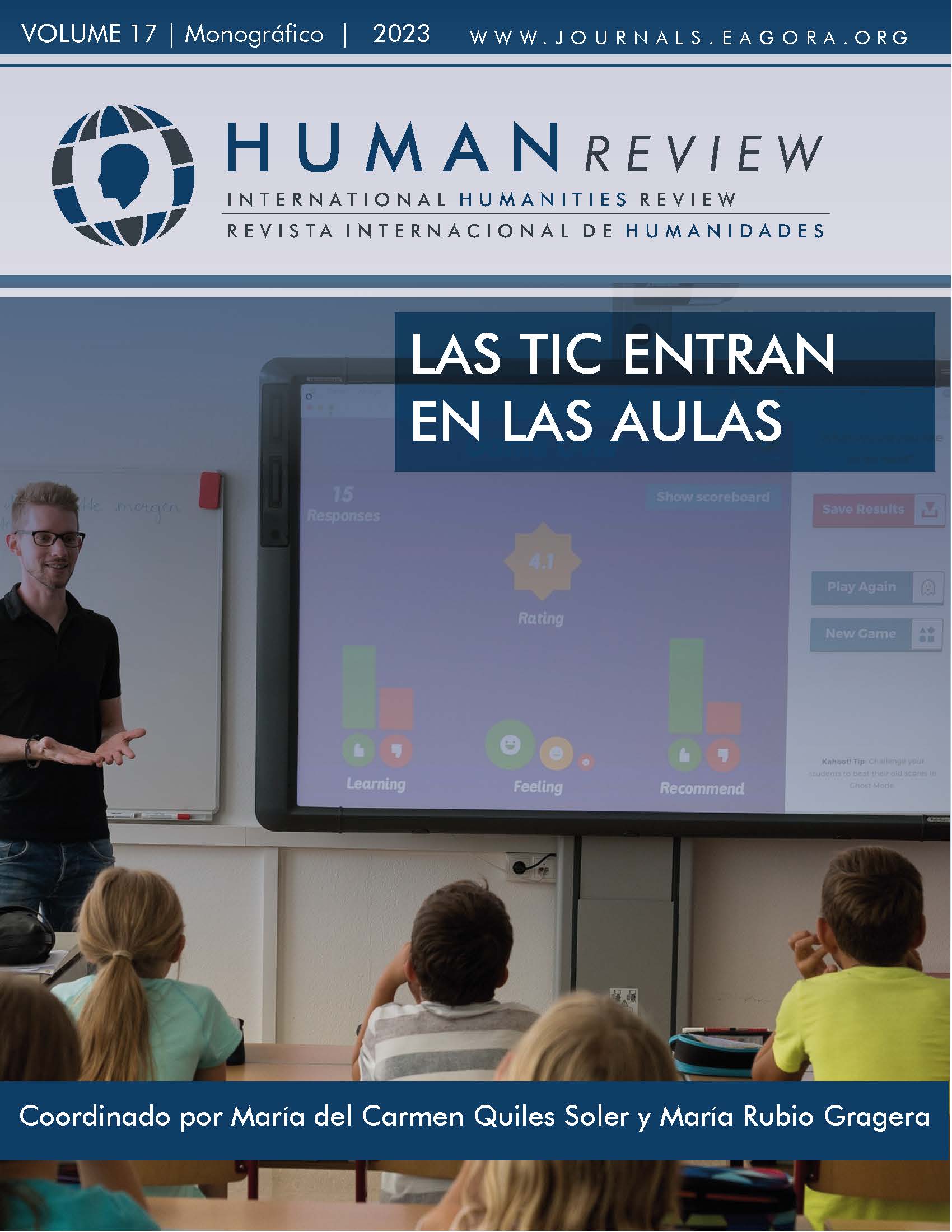ITCs for the management of learning in health
Drug services in the Americas
DOI:
https://doi.org/10.37467/revhuman.v12.4743Keywords:
Learning in Health, Drug Care, Public Management, Training, ICTsAbstract
This study aimed to analyze experiences that consider ICTs in the management of learning in health and to identify some components that can facilitate a management mechanism to promote training and knowledge development for the care of drug use, abuse, and dependence from the perspective of evidence-based learning. To carry out this work, a community-based research methodology has been used, through an educational project with drug learning communities with 200 people from countries in the Americas such as Colombia, Mexico, Panama, Chile, and Paraguay.
References
Alonso Aranda, F. (2015). La historia de las política mexicana de drogas en el siglo XX. En B. Caiuby Labate, & T. Rodrigues (Eds.), Drogas, políticas y sociedad en América Latina y el Caribe. (pp 80-81). Centro de Investigación y Docencia Económica (CIDE)).
Ambos, K., Malarino, E. & Funchs, M. C. (2017). Drogas ilícitas y narcotráfico. Nuevos desarrollos en América Latina. Konrad-Adenauer-Stiftung. EDPAL
Beckman, S. L., & Barry, M. (2007). Innovation as a Learning Process: Embedding Design Thinking. California Management Review, 50(1), 25–56.https://doi.org/10.2307/41166415
Soares Carneiro, S. (2015). Las transformaciones del paradigma prohibiccionista de las drogas: América Latina y el Caribe en el centro del debate internacional. En B. Caiuby Labate, & T. Rodrigues (Eds.), Drogas, política y sociedad en América Latina y el Caribe. (pp. 150-151). Centro de Investigación y Docencia Económica.
CICAD-OEA (2021). Informe anual de la Comisión Interamericana para el Control del Abuso de Drogas https://www.oas.org/es/sms/cicad/sesiones/71/docs/CICAD_Informe_Anual_2021.pdf
Collinson, C. & Parcell, G. (2003). La gestión del conocimiento. Lecciones prácticas de una empresa líder. Paidós Ibérica.
CONADIC (2011). Diagnóstico Institucional de establecimientos especializados en adicciones. Secretaría de Salud Federal. Comisión Nacional contra las adicciones.
Famimundo Institute (2018). Mecanismo de Gestión del conocimiento para la Innovación socioeducativa comunitaria. Iniciativa Superior.
García Martinez, B., González Acolt, R., & Leal Medina, F. de J. S. (2018). Modelo para evaluar el ciclo de vida de un clúster. Repositorio de la Red Internacional de Investigadores en Competitividad, 5(1). https://riico.net/index.php/riico/article/view/626
García, O. F. (2022). Sistemas y Ambientes Educativos. El aprendizaje en los proyectos educativos de adicciones en la Zona Metropolitana de Jalisco, México [Tesis Doctoral]. Universidad de Guadalajara.
Gutiérrez Serrano, N. G. (2018). Producción de conocimiento en red entre la academia y la empresa. El caso de la unidad Saltillo del Cinvestav. Instituto de Investigaciones Sociales. Anthropos.
Manzini, Ezio. (2015). Design, when everybody designs: an introduction to design for social innovation. MIT Press.
Maldonado Cesar. (2005). Pautas metodológicas para el análisis de Ginebra: oficina internacional del trabajo. Organización Internacional del Trabajo. http://oit.org/wcmsp5/groups/public/---ed_emp/---emp_ent/---ifp_seed/documents/publication/wcms_117525.pdf
Marca-Francès, G., Compte-Pujol, M., Menéndez-Signorini, J. A., & Frigola-Reig, J. (2021). La comunicación como elemento fundamental en la literatura especializada en experiencia de paciente (1989-2013). Revista de Comunicación Y Salud, 11, 103-123. https://doi.org/10.35669/rcys.2021.11.e269
Mendoza Molina, X. & Bernabeu Tamayo, M. D. (2006). Aprendizaje basado en problemas. Competencias del profesional de la salud. Innovación Educativa, 6, 1-12. https://www.redalyc.org/articulo.oa?id=179420847008
Mendoza Olguín, G. E., Mendoza Olguín, I. A., Pérez de Celis Herrero, M. de la C. y Somodevilla García, M. J. (2022). Relevancia de los Sistemas Personales de Salud durante la pandemia de COVID-19 en México. Revista de Comunicación y Salud, 12, 61-81. https://doi.org/10.35669/rcys.2022.12.e287
Mignone Javier, (2009) Social Capital and Aboriginal Communities: A critical assessment synthesis and assessment of the body of knowledge on social capital with emphasis on Aboriginal communities. Journal de la santé autochtone. 3, 102-143
Morales-Chainé, S. Felix-Romero, V., Palafox Palafox, G. & Vázquez Martínez, J. L. (2019). Conocimientos, habilidades y actitudes profesionales para la intervención breve en adicciones. Revista Internacional de investigación en adicciones, 5(2). 18-20. http://dx.doi.org/10.28931/riiad.2019.2.02
Nachira, F. & Dini, P. (2007). A Network of Digital Business Ecosystems for Europe: Roots, Processes, and Perspectives. Office for Official Publications of the European Communities. www.semanticscholar.org/paper/A-Network-of-Digital-Business-Ecosystems-for-Europe-Nachira-Dini/fb729e7dd05657dda55d254246dc01715c502878
Ruiz Zuluaga, E., Restrepo Tobon, M. V., Molina Velásquez, D., González Cortés, J. H., Dávila Cañas, L. & Rodríguez Bustamante, A. (2021). De la farmacodependencia a la comprensión de las adicciones en el marco de la salud mental. En C. A. Robledo Marín, E. N. Galeano Gasca, & J. F. Herrera Piedrahita (Eds.), Sujetos, consumos y aportes para la prevención y atención de las adicciones. (pp. 354 -355). Escuela contra la Drogadicciòn.
Santos, S. & Teixeira, A. (2007). A new look into the evolution of clusters literature. A bibliometric exercise. Universidade do Porto.
Sixto-Costoya, A. & Olivar Arroyo, A. (2018). Educación Social y Trabajo Social en Adicciones: recuperar el territorio colaborando. RES. Revista de Educación Social. (26),141-158. https://dialnet.unirioja.es/servlet/articulo?codigo=6417109
Silva Cañaveral, S. J. (2021). Construcción colectiva de sentidos en espacios formales e informales y relacionales de investigación. En C. Isabel Rojas Rodríguez & L. María Alarcón Aranguren (Eds.). Reflexiones IV. Diseño, Desarrollo e Innovación Social (pp. 33-47). Universidad Pedagógica y Tecnológica de Colombia
Velásquez, L. A., Alvarado Mendoza, S. Y., & Barroeta Hidalgo, V. del V. (2021). Investigación-acción-participativa: alternativa metodológica para el estudio de las comunidades. La visión de Orlando Fals Borda. Revista Scientific, 6(21), 314–335. https://doi.org/10.29394/Scientific.issn.2542-2987.2021.6.21.17.314-335
Yen Chih Huang – Yang Chieh Chin, (2018). Transforming collective knowledge into team intelligence: the role of collective teaching. JOURNAL OF KNOWLEDGE MANAGEMENT. VOL. 22 NO. 6 2018, pp. 1243-1263. DOI 10.1108/JKM-03-2017-0106
Downloads
Published
How to Cite
Issue
Section
License
Those authors who publish in this journal accept the following terms:
- Authors will keep the moral right of the work and they will transfer the commercial rights.
- After 1 year from publication, the work shall thereafter be open access online on our website, but will retain copyright.
- In the event that the authors wish to assign an Creative Commons (CC) license, they may request it by writing to publishing@eagora.org









